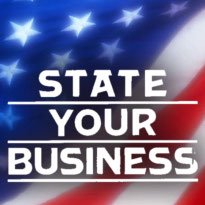 Latin American hotel and casino operator Beneficial Holdings has announced its intention to apply for a Nevada online poker license. Beneficial, which currently operates online gaming sites sportsbook.cr and bet.cr, is reportedly having discussions with existing Nevada gaming license holders on a possible joint venture.
Latin American hotel and casino operator Beneficial Holdings has announced its intention to apply for a Nevada online poker license. Beneficial, which currently operates online gaming sites sportsbook.cr and bet.cr, is reportedly having discussions with existing Nevada gaming license holders on a possible joint venture.
Nevada is currently the only state to have enacted online poker legislation. As suggested here last week, Hawaii’s gambling bills are now officially done for the current legislative session. Rep. Angus McKelvey, one of the sponsors of Hawaii’s most recent attempts to bring the state into the 19th century, told CardPlayer that the bills had been run up the flag pole only to have no one salute. However, bills calling for further study of the potential impact of land-based casino gambling on state residents and state coffers may go forward.
In Maine, proposals that would allow the Maine State Lottery to offer tickets online starting Sept. 2013 are drawing fire from multiple angles. On Monday, the state legislature’s Veterans and Legal Affairs Committee heard from retailers afraid of losing the commissions they earn from their lottery terminals. Also objecting to the state’s plan are the operators of the Hollywood Casino Hotel & Raceway in Bangor, who think any online gaming in the state should be run by them. Like racetracks, lottery operations are suffering from an aging user base, and lottery officials believe that going online will help enhance the lottery’s image in the minds of Maine residents who don’t eat dinner every day at 4pm.
Illinois experienced similar resistance from lottery retailers but forged ahead anyway, and this Sunday (25) will become the first state in the union to sell individual MegaMillions and Lotto tickets online. Like his counterparts in Maine, lottery superintendent Michael Jones told the State Journal-Register that the online offering was intended to counter the lottery’s “narrowly based” appeal. “A finite group of people play a lot, and what a successful lottery is all about is getting a large number of people to play a little.” Estimates suggest the online availability could boost MegaMillions sales by $78m to $118m, half of which is kept by the state. Illinois was one of two states (the other being New York) whose inquiries about the legality of selling tickets online led to December’s about-face by the Department of Justice on the scope of the Wire Act.





